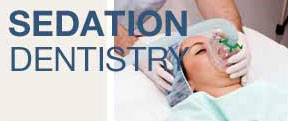ADVANCED DENTAL SCARSDALE ORAL SURGERY
DENTAL ANESTHESIA & SEDATION
IV Sedation | Deep Sedation

IV Sedation or Deep Sedation are used most often during wisdom teeth removal,implant placement and other surgical procedures, but patients often choose comprehensive sedation techniques, including IV, for comfort during long procedures. Sedation is also used for the anxious or medically compromised patient.
Westchester/Scarsdale Advanced Dental practice equipped with monitoring equipment and all sedated patients are constantly monitored for blood pressure, heart rate and blood oxygen saturation levels.
Before Intravenous Anesthesia Sedation:
- You may not have anything to eat or drink (including water) for eight hours prior to the appointment
- No smoking for at least 12 hours before surgery. Ideally, cut down or stop smoking as soon as possible prior to the day of surgery.
- A responsible adult must accompany the patient to the office, remain in the office during the procedure, and drive the patient home.
- The patient should not drive a vehicle or operate any machinery for 24 hours following anesthesia.
- Please wear loose fitting clothing with sleeves which can be rolled up past the elbow, and low-heeled shoes.
- Contact lenses, jewelry, and dentures must be removed at the time of surgery.
- Do not wear lipstick, excessive makeup, or nail polish on the day of surgery.
- If you have an illness such as a cold, sore throat, stomach or upset bowels, please notify the office.
- If you take routine oral medications, please check with oral surgeon prior to your surgical date for instructions
Please read the information below to make sure you are ready for surgery by following oral surgeon instructions to prepare for IV sedation or deep
sedation.
If you have any questions, please call our Advanced Scarsdale Oral Surgery department before your appointment: 914-874-5757
After Sedation:
• Have your escort take you home and rest for the remainder of the day
• Have an adult stay with you until you're fully alert
• Don't perform any strenuous or hazardous activities and don't drive a motor vehicle for the rest of the day
• Don't eat a heavy meal immediately. If you're hungry, eat something light,
e. g. liquids and toast
• If you experience nausea, lie down for a while or drink a glass of soda
• Take medications as directed
• If you have any unusual problems please contact us : 914-874-5757
In Case Of Emergency Call 911.
Laughing Gas
Inhalation sedation, laughing gas, relative analgesia, RA, happy gas, gas and air, nitrous, nitrous oxide, N2O-O2… this one has more names than any other sedation technique. And deservedly so. Inhalation sedation with nitrous oxide (N2O) and oxygen (O2) has been described as “representing the most nearly ‘ideal’ clinical sedative circumstance”…
Is Laughing Gas Safe?
Nitrous Oxide (N2O), commonly called "Laughing Gas" is one of the safest forms of sedation available to alleviate anxiety during dental procedures.
How does Laughing Gas affect patients?
It is simply a gas, which you breathe in through a small personal mask.
Nitrous Oxide is colorless gas which decreases pain sensitivity and gives the patient a sense of decreased proximity to the dental experience. It is sweet-smelling, and nonirritating. The onset of the effects of nitrous oxide is felt within minutes, and these effects wear off soon after the mask is removed. The patient begins to feel a pleasant level of sedation in anywhere from 30 seconds to three or four minutes. The cheeks and gums will also begin to feel numb in about a third of the patients. This means you are 100% ready to independently carry on your life after the use of nitrous oxide.
After the gas is adjusted to the appropriate dose, and the patient is relaxed and sedated, the dentist can comfortably give the anesthetic injection (if needed) to the patient, and then proceed with the dental treatment.
After the treatment is completed, the patient is given pure oxygen to breathe for about five minutes, and all the effects of the sedation are usually reversed.
Unlike sedation or general anesthesia, the patient can almost always leave the office by themselves, without an escort.
What if I'm very sensitive to sedation?
Almost anyone can have nitrous oxide treatment. We can vary the depth of sedation depending on your level of anxiety. Nitrous oxide gas also tends to reduce gag reflexes and saliva flow. Most importantly, you will bask in a feeling of relaxation while breathing nitrous oxide gas as we care for you.
What should I know before using laughing Gas?
As a precaution, patients should not eat anything for about two hours prior to use of the gas. Nitrous oxide has few side effects although high doses can cause nausea in some patients, and about 10% of patients do not benefit from it. Patients that are claustrophobic or have blocked nasal passages cannot use nitrous oxide effectively. Nitrous oxide is one of the safest anesthetics available.
To schedule an appointment with Oral surgeon please contact Advanced Dental Scarsdale Oral Surgery:
Call Us : (914) 874-5757
130 Garth Road
Scarsdale, NY 10583
open saturdays & sundays
CALL US:
(914) 874-5757